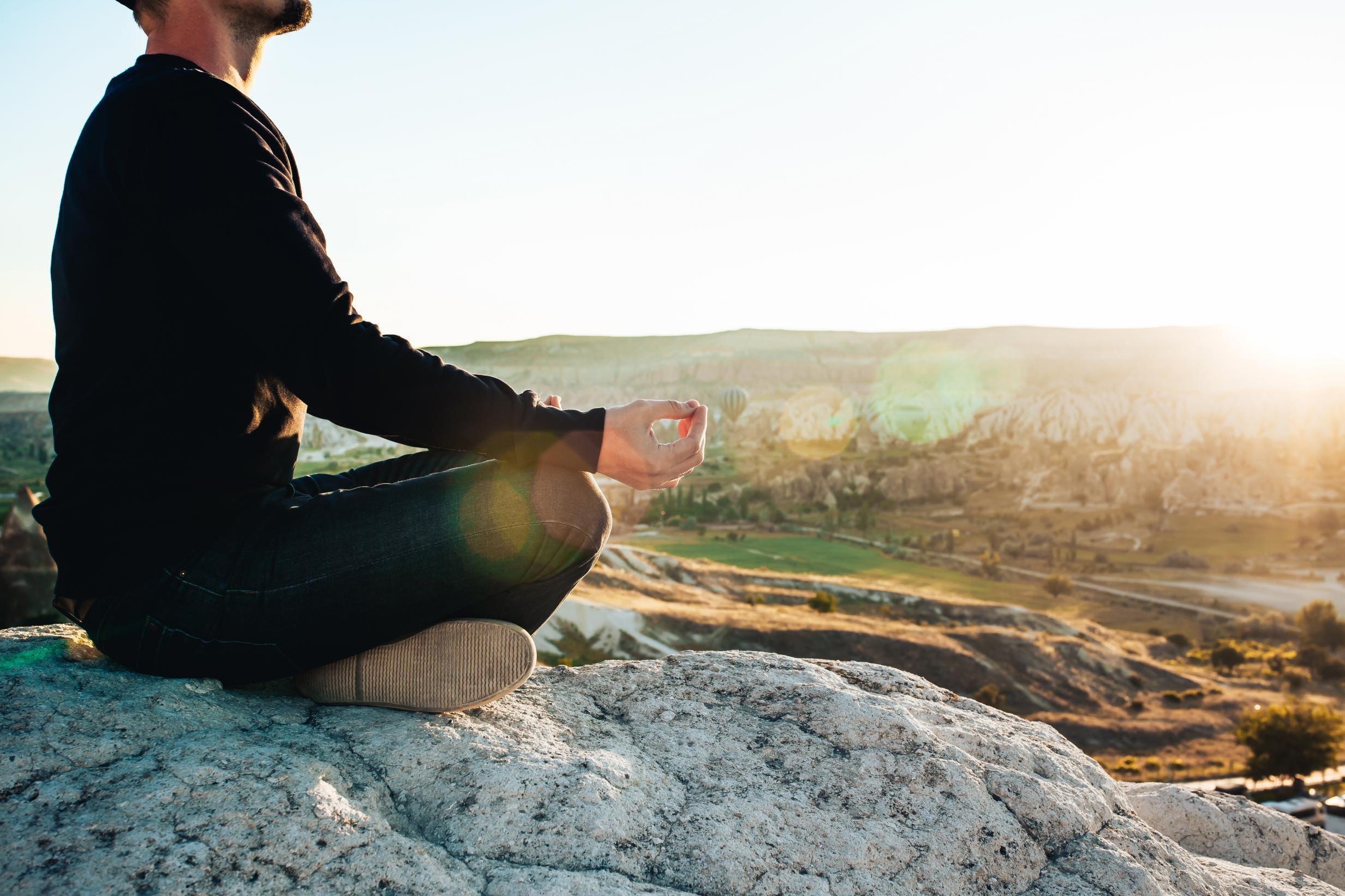The Independent's journalism is supported by our readers. When you purchase through links on our site, we may earn commission.
Man asks if he missed anything after returning from 75-day silent retreat
'People at the grocery store seem more anxious than I remember'

Your support helps us to tell the story
From reproductive rights to climate change to Big Tech, The Independent is on the ground when the story is developing. Whether it's investigating the financials of Elon Musk's pro-Trump PAC or producing our latest documentary, 'The A Word', which shines a light on the American women fighting for reproductive rights, we know how important it is to parse out the facts from the messaging.
At such a critical moment in US history, we need reporters on the ground. Your donation allows us to keep sending journalists to speak to both sides of the story.
The Independent is trusted by Americans across the entire political spectrum. And unlike many other quality news outlets, we choose not to lock Americans out of our reporting and analysis with paywalls. We believe quality journalism should be available to everyone, paid for by those who can afford it.
Your support makes all the difference.A man has returned from a 75-day silent meditation retreat to find the country dramatically changed in his absence as a result of the coronavirus pandemic and the death of George Floyd.
Daniel Thorson, 33, from Vermont, entered the Buddhist Monastic Academy, of which he is a member, in mid-March.
On 23 May, after two and a half months, Thorson returned from his isolation and tweeted: “I'm back from 75 days in silence. Did I miss anything?”
As he was later informed, Thorson missed a lot during his time in a cabin in a remote part of northwestern Vermont, including the spread of coronavirus, the 6.29m confirmed cases worldwide and the more than 100,000 deaths that occurred in the US as a result.
According to Thorson, his first glimpse of the changes he had missed occurred when he visited the supermarket unaware of social distancing guidelines.
“People at the grocery store seem more anxious than I remember,” he tweeted on 25 May.
“I would turn a corner in the grocery store, and someone would be there, and they would recoil,” he told The New York Times. “I haven’t installed the Covid operating system. At first, I was, like ‘Whoa, what did I do?’”
Upon his return online, Thorson learned just how big of a topic the coronavirus pandemic had become, and how it seemed to overshadow or encompass almost anything else, both in the news and in day-to-day conversations.
“Everything else is gone,” he said. “There’s nothing about the election! It’s amazing! The Australian wildfires, what happened there? Didn’t Brexit happen?
“Everybody has extremely strongly held, very different opinions about everything: how dangerous it is, what the response should have been, how it’s going, whether or not we need to isolate, how to treat it if you get it.
“There is one consensus proposition that, it seems to me, everybody holds. It’s that whatever happened in the last three months is one of the most significant events in modern history.”
Two days after Thorson returned, Floyd, a black man, was killed by a white former police officer in Minnesota, sparking protests against police brutality and racism around the world.
“While I was on retreat, there was a collective traumatic emotional experience that I was not a part of,” he said on his second day back. “To what degree do I have to piece it back together?”
Thorson also found that people were curious about his experience as well.
On Twitter, replies to his inquiry ranged from joking responses that he hadn’t missed much to comments such as: “I feel like we should be asking you that question?”
“I feel like an oddity, I feel like a curiosity,” he explained to The Times. “I don’t know what they expect me to say.”
Join our commenting forum
Join thought-provoking conversations, follow other Independent readers and see their replies
Comments